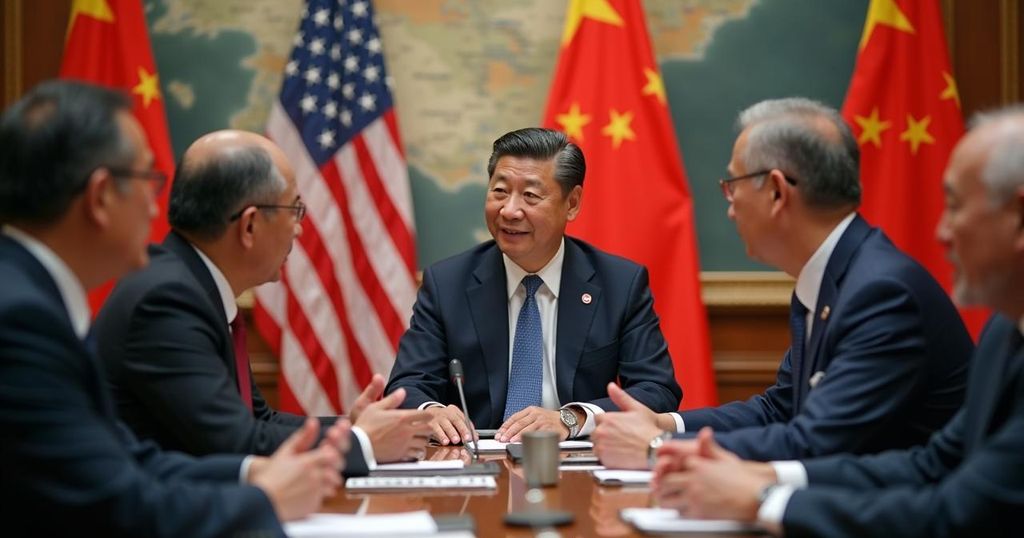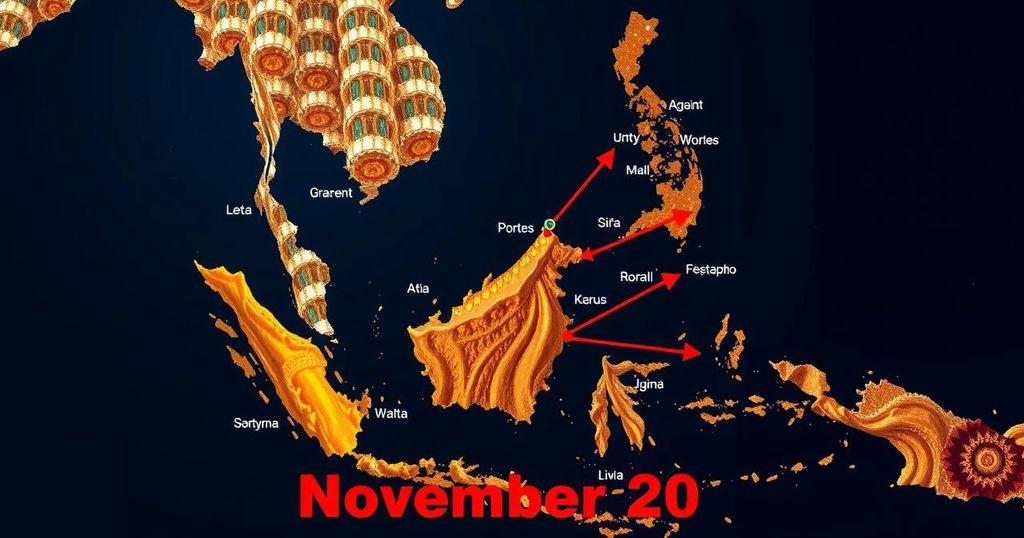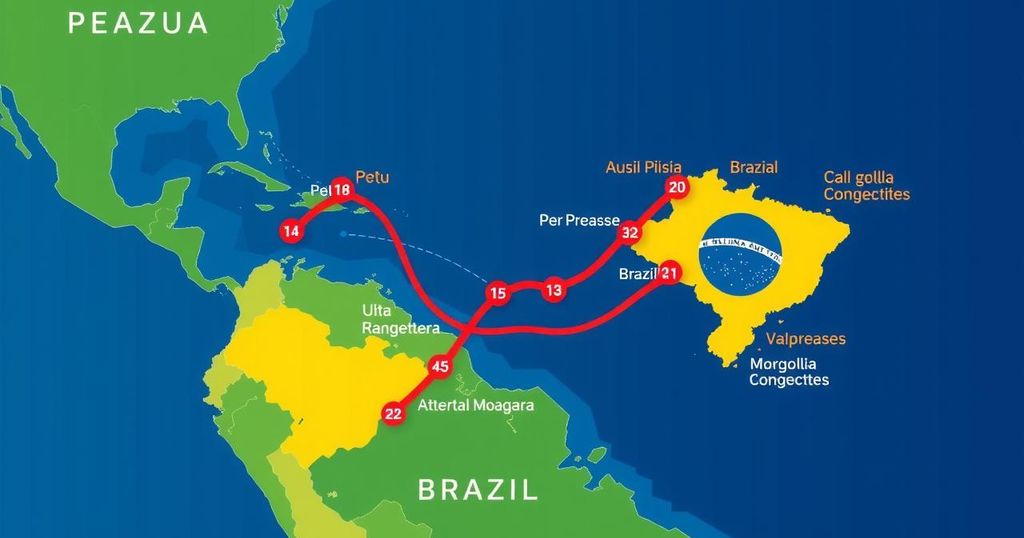U.S. Expresses Concerns Over China’s Actions in South China Sea at ASEAN Summit
At the 12th ASEAN-U.S. Summit in Vientiane, Secretary of State Antony Blinken expressed U.S. concerns about China’s “dangerous” activities in the South China Sea. He reaffirmed the U.S. commitment to freedom of navigation amid rising tensions following confrontations between Chinese and ASEAN vessels. Blinken’s remarks come as Southeast Asian leaders, including the Philippine President, seek urgent measures to address ongoing maritime disputes and reaffirm the role of international law.
At the recent 12th Association of Southeast Asian Nations (ASEAN)-United States Summit held in Vientiane, Laos, on October 11, 2024, U.S. Secretary of State Antony Blinken expressed significant concerns regarding China’s escalating “dangerous and unlawful” actions in the contested South China Sea. This summit gathered leaders from the 10 ASEAN member states, alongside Blinken, where discussions were intensified due to recent violent interactions at sea involving China and ASEAN nations, particularly the Philippines and Vietnam. During his opening remarks, Secretary Blinken underscored the importance of upholding freedom of navigation in this critical maritime route, which witnesses approximately one-third of global trade. He articulated, “We are very concerned about China’s increasingly dangerous and unlawful activities in the South China Sea which have injured people, harmed vessels from ASEAN nations and contradict commitments to peaceful resolutions of disputes.” China stakes a claim over nearly the entirety of the South China Sea, a stance contested by ASEAN members, including Vietnam and the Philippines, whose mutual disputes raise fears of potential conflict escalation. Recent clashes between Chinese and Philippine vessels, as well as reported aggressions against Vietnamese fishermen, intensify these concerns. President Ferdinand Marcos Jr. of the Philippines voiced his frustration at the summit, stating that the Philippine nation “continues to be subject to harassment and intimidation” by China, calling for greater urgency in pursuing a consensus on a code of conduct governing conduct in these waters. Notably, the Philippines remains the United States’ oldest treaty ally in Asia, and Blinken reaffirmed the U.S. commitment to defend it against any armed attacks in the South China Sea. In response to the tensions, leaders of ASEAN have been cautious; while they maintain vital trade relations with China, they recognize the necessity of addressing maritime disputes to prevent accidents from spiraling into larger conflicts. Moreover, the ASEAN chairmanship is transitioning to Malaysia, which aims to expedite discussions on the code of conduct with plans to finalize this by 2026. Chinese officials, during the summit, reiterated their stance, framing the South China Sea as a “shared home” while asserting their rights over the area against what they perceive as external interference, notably from the United States.
The South China Sea is a strategically significant maritime region, rich in resources and vital for global trade, accounting for about one-third of the world’s shipping traffic. It is subject to overlapping territorial claims from several nations, including China, which contests the maritime rights of ASEAN countries including Vietnam, the Philippines, Malaysia, and Brunei. A ruling by the Permanent Court of Arbitration in 2016 invalidating China’s claims has not been acknowledged by Beijing. Recent years have seen increased militarization of islands claimed by China and aggressive encounters at sea, raising fears of potential conflicts in this already volatile region. In light of these developments, the United States, while not having any territorial claims, has actively conducted naval operations in the area to challenge these assertions of sovereignty and reaffirm its commitment to maintaining open sea lanes.
In summary, the recent ASEAN-U.S. Summit highlighted the critical concerns regarding China’s assertive actions in the South China Sea, with U.S. Secretary of State Antony Blinken emphasizing the need to uphold international maritime norms and freedom of navigation. ASEAN leaders, particularly from the Philippines and Vietnam, have echoed these sentiments, fearing that unresolved disputes could lead to conflict. Moving forward, collaborative efforts towards a code of conduct remain paramount, especially as regional dynamics continue to evolve amidst China’s claims and military build-up.
Original Source: apnews.com








Post Comment